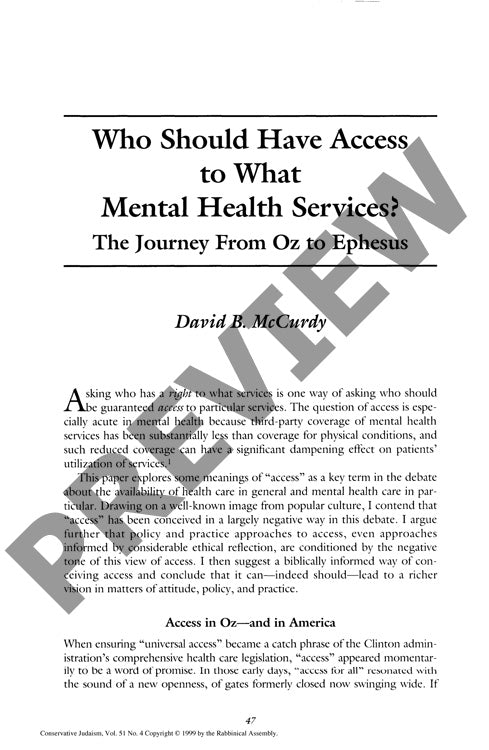Who Should Have Access to What Mental He
Couldn't load pickup availability
Access to mental health care in America operates through a restrictive, gatekeeping model reminiscent of *The Wizard of Oz*, where worthiness assessments create adversarial relationships between patients, providers, and payers. Through comparative analysis of contemporary American mental health access issues and the biblical model presented in Ephesians 2:11-22, multiple systemic barriers emerge: financial constraints, discriminatory coverage policies, managed care restrictions, and stigmatization that disproportionately affects vulnerable populations. While resource limitations necessitate some constraints on service provision, the Greek term *prosagoge* (access) in Ephesians suggests an alternative framework emphasizing divine initiative, generosity, and proactive inclusion. This biblical model yields seven key principles for reconceptualizing access: providing what people most need, operating from graciousness rather than distributive justice, taking proactive initiative, overcoming hostility and estrangement, recognizing mutual vulnerability, embracing shared citizenship, and demonstrating creative persistence. The findings indicate that incorporating this generous spirit into policy development and clinical practice could transform both the substance and tone of mental health care delivery. Genuine reform requires not only prudential resource allocation but also a fundamental shift toward viewing access as a communal good to be shared generously rather than a scarce commodity to be tightly controlled.

More Information
-
Physical Description
-
Publication Information
Published 1999
ISBN
-
Publication Credits
David McCurdy

